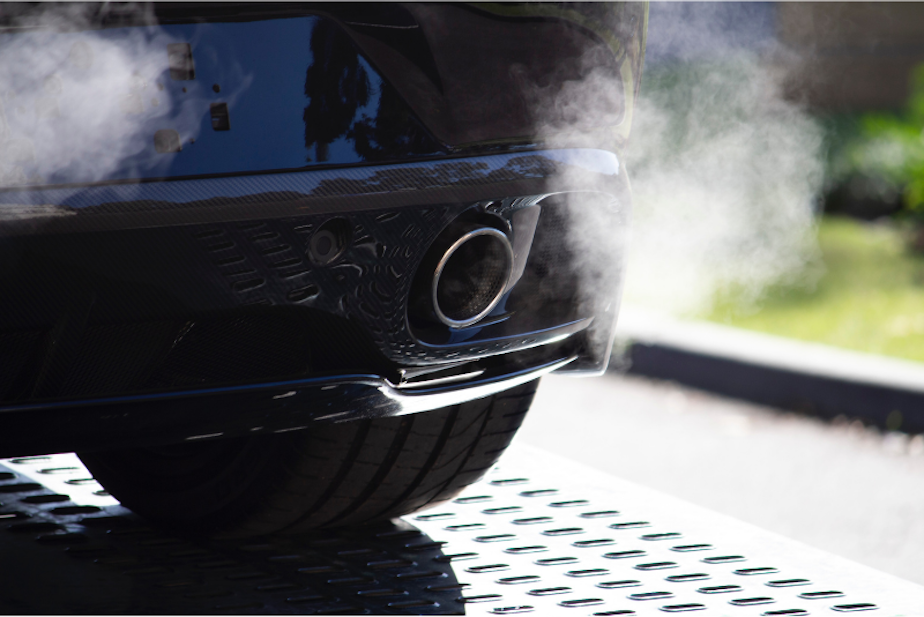Will Washington state do away with cap-and-trade? Voices for and against Initiative 2117

As Washington Gov. Jay Inslee prepares to leave office, the core of his legacy is under attack on the November general election ballot.
The Climate Commitment Act, or CCA, was adopted in 2021. The goal: for the state to reach net zero emissions by 2050.
To help achieve that, the CCA included a cap-and-trade system, or "cap-and-invest," through which major polluters purchase carbon allowances at auction. The first such auction was held on Feb. 28, 2023. Companies and organizations paid more than $2 billion last year, over the course of the quarterly auctions, for the right to keep polluting. The money generated from the auctions goes to green transportation projects and climate resiliency work.
RELATED: Will natural gas be turned off in Washington state? Voices for and against I-2066
A limited number of carbon allowances are available at each auction, with 100 or so companies bidding on them. Over time, the state plans to reduce the number of allowances — in other words, lowering the "cap" on carbon pumped into the atmosphere.
That's if the cap-and-trade system survives the November election.
Initiative 2117 would do away with the system and ban the state from putting in place a similar carbon credit trading mechanism for two years — that would effectively gut the CCA, as it would remove the law's core funding mechanism. Supporters gathered more than 500,000 signatures to put I-2117 on the ballot.
If enough Washingtonians vote "yes" on I-2117, that result would eliminate the cap-and-trade system. A victory for the "no" votes would keep the system in place.
RELATED: Washington holds first carbon auction of 2024, with program's future in doubt
To learn more about the arguments for and against, Soundside host Libby Denkmann spoke with people on both sides of the initiative.
Sponsored
Putting a lid on cap-and-trade
I-2117 proponents — who want to see cap-and-trade repealed — argue the CCA has led to higher gas prices, as well as heating and cooling costs for Washington residents because fuel companies have had to pay for their emissions. Just how much gas prices have risen specifically because of the CCA is up for debate, but I-2117 proponents say Washingtonians were misled about potential price increases when the law was approved.
Sponsored
Brian Heywood, the main sponsor of I-2117 and other Republican-backed initiatives on the ballot this year, has called this a regressive tax on commuters.
I-2117 advocates also argue there isn't enough transparency within the CCA. They say there isn't enough data to support whether the cap-and-trade system actually lowers greenhouse gas emissions — or whether investments the state is making with the money generated from carbon auctions will have an impact on future emissions.
The most recent emissions data from the Department of Ecology is from 2019. The department is required by Washington law to release these reports every two years. The 2020 report is late, but department officials told Soundside they aren't hiding data and will have the numbers up to 2021 by the end of this year.
No cap on cap-and-trade
To address the matter of gas prices, I-2117 opponents (that is, folks who support the carbon auctions) say there's no guarantee gas prices will go down if the measure passes passes.
Sponsored
As for whether investments the state is making will have a tangible effect on emissions, they say it's too early to tell what the results of projects like electrified ferries will have, ultimately. They say I-2117 would effectively handcuff the state in its ability to reach its emissions goals.
RELATED: Why Washington tribes are fighting effort to gut the state's Climate Commitment Act
Further, they contend that money from the carbon auctions is invested through the budgeting process, which is shaped by state lawmakers. I-2117 could affect projects that have already been budgeted for, they say.
The state has already allocated money from carbon auctions for future projects. For example, the "Move Ahead Washington" bill planned for more than $5 billion to transportation projects. Legislators would need to find additional revenue (like a tax) or take money from other projects to cover the loss in available dollars, if the auction revenue dries up.
And ultimately, I-2117 opponents argue the campaign against cap-and-trade hasn't proposed an alternative to what's already in place.
To hear both sides of the argument, listen to Soundside's interviews with House Majority Leader Joe Fitzgibbon here and Washington Policy Center's Todd Myers here.





